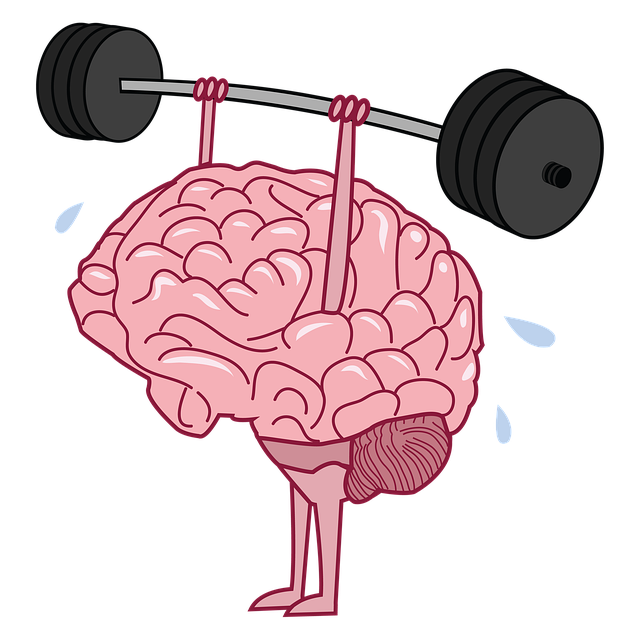Crisis Intervention Teams (CITs), enhanced by trained professionals skilled in Castle Rock Cognitive Processing Therapy (CRCPT), are first responders to mental health crises. Using evidence-based practices like active listening and collaborative problem-solving, CITs de-escalate high-risk situations, promote healing, and prevent harm. CRCPT, a powerful tool within these programs, focuses on processing traumatic experiences, reducing healthcare provider burnout, and enhancing resilience. Effective training combines interactive simulations, theoretical frameworks, and emotional regulation tools, fostering profound understanding of trauma responses and improving support capabilities. This approach benefits both team members and those they serve, contributing to enhanced community resilience through public awareness campaigns, stress management techniques, and mental wellness journaling exercises.
Crisis intervention team (CIT) training programs are essential in equipping professionals with the skills to navigate high-pressure situations. This article delves into the critical role of CITs, highlighting their significance in mental health support and emergency response. We explore Castle Rock Cognitive Processing Therapy as a powerful tool within these programs, offering evidence-based techniques for effective crisis management. Furthermore, it provides strategic insights on designing comprehensive training, emphasizing the integration of cognitive processing therapy methods to foster competent and confident CIT members.
- Understanding Crisis Intervention Teams: Their Role and Importance
- Castle Rock Cognitive Processing Therapy: A Key Component of Effective Training
- Designing Comprehensive Training Programs: Essential Elements and Strategies
Understanding Crisis Intervention Teams: Their Role and Importance

Crisis Intervention Teams (CITs) play a pivotal role in responding to individuals in mental health crises. These specialized teams typically consist of trained professionals from various disciplines, including Castle Rock Cognitive Processing Therapy practitioners. Their primary objective is to provide immediate and effective support to those experiencing severe emotional distress or suicidal ideation. By integrating diverse expertise, CITs offer comprehensive care tailored to each individual’s unique needs.
The significance of CITs lies in their ability to de-escalate high-risk situations, promote healing, and prevent further harm. Through evidence-based practices, such as active listening, crisis counseling, and collaborative problem-solving, team members guide individuals toward recovery. Additionally, public awareness campaigns, coupled with stress management techniques and mental wellness journaling exercises, can enhance the overall effectiveness of CITs. Guidance on implementing these strategies ensures that communities are better equipped to navigate crises and foster resilience among their members.
Castle Rock Cognitive Processing Therapy: A Key Component of Effective Training

Castle Rock Cognitive Processing Therapy (CRCPT) is a powerful tool within crisis intervention team training programs. This therapeutic approach focuses on helping individuals process and manage traumatic experiences, making it an essential component for teams responding to emotional crises. CRCPT goes beyond traditional talk therapy by teaching practical strategies to reframe negative thoughts and emotions associated with distressing events, thereby reducing the risk of burnout among healthcare providers.
By integrating CRCPT into training curricula, crisis intervention teams can enhance their resilience and overall mental wellness. This method encourages participants to explore cognitive distortions that may arise in high-pressure situations, fostering better emotional regulation skills. Moreover, it complements social skills training by promoting effective communication and teamwork, which are vital for successful crisis management. The impact of CRCPT extends beyond the training hall, potentially influencing the quality of care provided to individuals in crisis and contributing to the overall mental wellness podcast series production by offering valuable insights into effective interventions.
Designing Comprehensive Training Programs: Essential Elements and Strategies

Effective crisis intervention team training programs are meticulously designed to equip participants with the skills and knowledge necessary to handle high-stress situations. A comprehensive curriculum should incorporate various essential elements, such as interactive simulations, theoretical frameworks like Castle Rock Cognitive Processing Therapy, and practical tools for emotional regulation. These elements foster a deeper understanding of trauma responses and enhance the team’s ability to support individuals through distressing events.
The training should also prioritize emotional healing processes, leveraging techniques from Mental Wellness Coaching Programs Development to promote resilience and adaptability. By balancing cognitive processing with emotional support, participants learn to navigate complex scenarios effectively. Incorporating strategies for de-escalation, communication, and aftercare ensures a well-rounded approach that benefits both the crisis intervention team members and those they serve.
Crisis intervention team (CIT) training programs play a pivotal role in equipping professionals with the skills to navigate and de-escalate critical situations. By integrating evidence-based approaches such as Castle Rock Cognitive Processing Therapy, these programs ensure that CIT members are prepared to handle complex trauma responses effectively. Comprehensive training should include practical scenarios, peer feedback, and continuous evaluation to meet the evolving needs of modern crisis management. This strategic approach enhances the overall resilience of organizations and communities, fostering a culture of support and safety for all involved.














